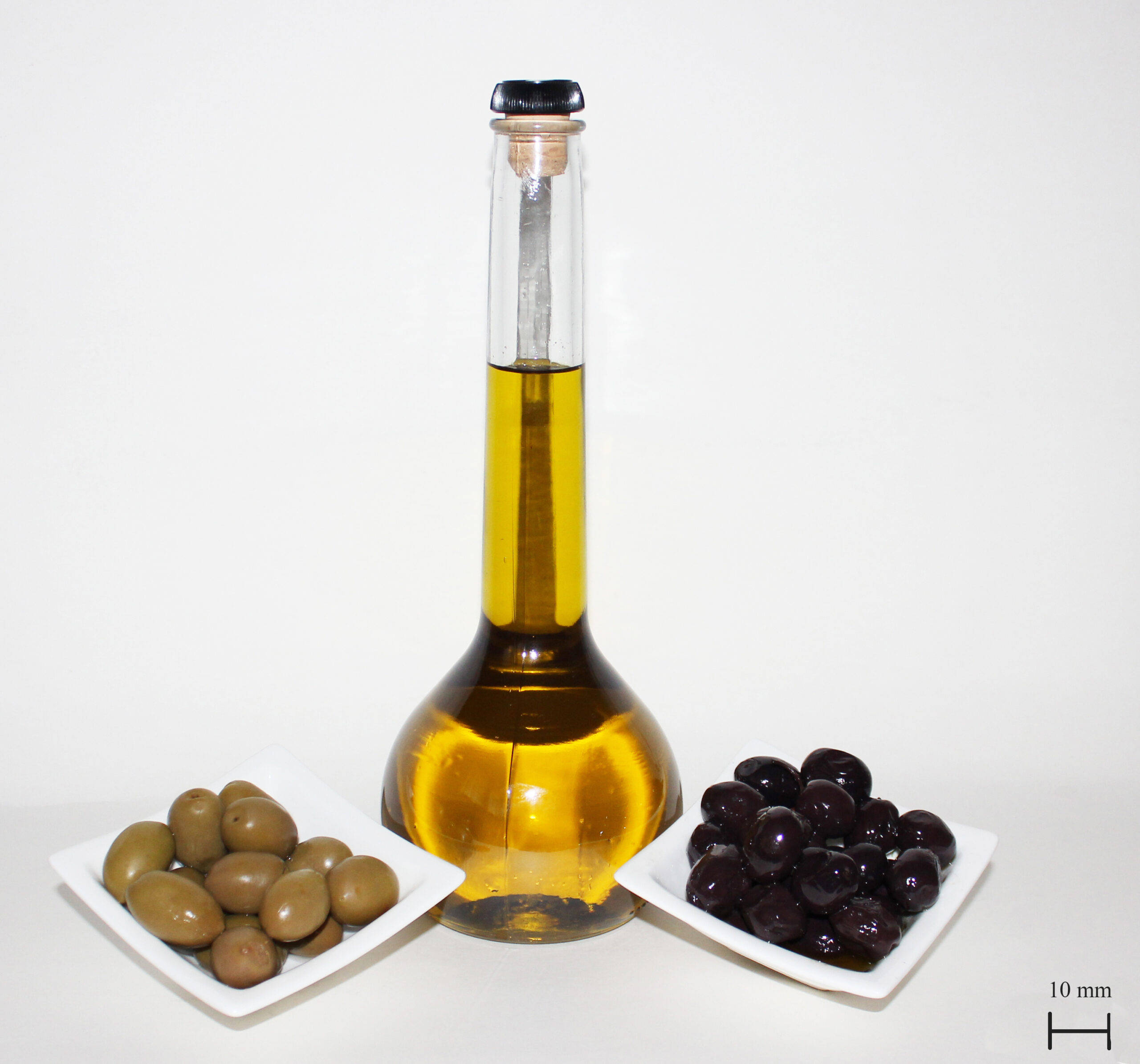What are the health benefits of olive oil?
Here are some of the key health benefits associated with consuming olive oil:
- Heart-Healthy Fats: Olive oil is rich in monounsaturated fatty acids, especially oleic acid, which can help lower LDL (“bad”) cholesterol and raise HDL (“good”) cholesterol, reducing the risk of heart disease.
- Anti-Inflammatory Properties: Olive oil contains polyphenol antioxidants that have potent anti-inflammatory effects, which can help protect against chronic diseases.
- May Improve Brain Function: The monounsaturated fats and antioxidants in olive oil may support cognitive function and help prevent age-related cognitive decline.
- Potential Cancer-Preventive Effects: Some studies suggest that the polyphenols in olive oil may have anti-cancer properties and help reduce the risk of certain types of cancer.
- Support for Gut Health: Olive oil contains compounds that may promote the growth of beneficial gut bacteria and improve overall digestive health.
- May Help Manage Diabetes: The healthy fats and polyphenols in olive oil may enhance insulin sensitivity and help regulate blood sugar levels and manage diabetes.
- Skin and Hair Benefits: Olive oil is rich in vitamin A and vitamin E, which can nourish and moisturize the skin and hair when used topically.
For maximum health benefits, it’s best to choose extra-virgin olive oil, as it retains more of the beneficial plant compounds compared to refined olive oils. Incorporating olive oil into the diet in place of other less healthy fats can be a simple way to support overall health.
What are the health risks of olive oil?
Olive oil is widely recognized for its health benefits and is a staple of the Mediterranean diet. While olive oil is generally considered safe and offers numerous health benefits when consumed in moderation, there are some potential risks associated with its use. These risks are typically minimal and may vary depending on factors such as quality, processing methods, and individual health conditions. Some potential health risks of olive oil include:
- High calorie content: Olive oil is a calorie-dense food, with approximately 120 calories per tablespoon. Consuming large quantities of olive oil without accounting for its calorie content may contribute to weight gain and obesity, especially if not balanced with other aspects of the diet and lifestyle.
- Potential for oxidation: Olive oil contains unsaturated fats, which are susceptible to oxidation when exposed to heat, light, or air. Oxidation can lead to the formation of harmful compounds that may contribute to inflammation and oxidative stress in the body. To minimize oxidation, it’s important to store olive oil in a cool, dark place and use it within a reasonable timeframe.
- Contamination: Poor-quality or adulterated olive oil may be contaminated with harmful substances, such as pesticides, solvents, or other contaminants. To reduce the risk of contamination, it’s important to choose high-quality, extra virgin olive oil from reputable sources.
- Potential allergic reactions: While rare, some individuals may be allergic to components of olive oil, such as proteins or polyphenols. Allergic reactions to olive oil may include symptoms such as itching, hives, swelling, or in severe cases, anaphylaxis.
- Interactions with medications: Olive oil may interact with certain medications, particularly blood thinners or medications for high blood pressure or diabetes. If you are taking medication, especially medications that affect blood clotting or blood sugar levels, it’s important to talk to your healthcare provider before consuming olive oil or olive oil supplements.
Overall, olive oil is considered a healthy fat and offers numerous health benefits, including improved heart health, reduced inflammation, and protection against chronic diseases. To maximize the health benefits of olive oil and minimize potential risks, it’s important to choose high-quality, extra virgin olive oil, consume it in moderation as part of a balanced diet, and store it properly to prevent oxidation. If you have specific health concerns or dietary restrictions, it’s best to consult with a healthcare provider or a registered dietitian.




